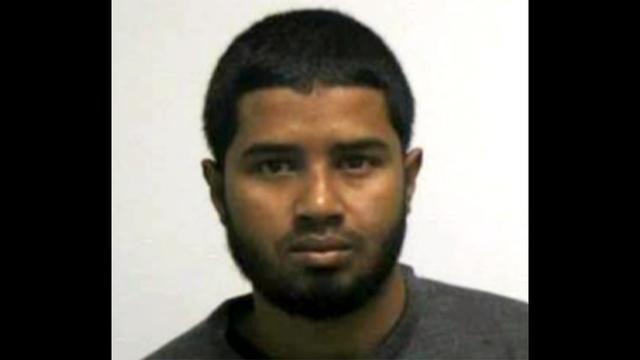 New Yorkers are still reeling from this week’s attack on the Port Authority Bus Terminal in midtown Manhattan. The suspect in custody has been identified by police 27-year-old Akayed Ullah – a Brooklyn resident of Bangladeshi descent who reportedly told authorities that he had been inspired by ISIS online propaganda.
New Yorkers are still reeling from this week’s attack on the Port Authority Bus Terminal in midtown Manhattan. The suspect in custody has been identified by police 27-year-old Akayed Ullah – a Brooklyn resident of Bangladeshi descent who reportedly told authorities that he had been inspired by ISIS online propaganda.
Last night, as media scrutiny intensified in the wake of the attack, the Ullah family delivered a statement, read in front of their Brooklyn home, by Albert Fox Cahn, legal director for Council on American-Islamic Relations-New York. And I’m guessing no one ran this statement by any media consultants to see how it would play. Here’s what Mr. Cahn said:
“We are heartbroken by the violence that was targeted at our city today, and by the allegations being made against a member of our family. But we are also outraged by the behavior of law enforcement officials who have held children as small as 4 years old out in the cold and who held a teenager out of high school classes to interrogate him without a lawyer, without his parents. These are not the sorts of actions that we expect from our justice system, and we have every confidence that our justice system will find the truth behind this attack and that we will, in the end, be able to learn what occurred today.”
Allow me to preface what I’m about to say: I respect and appreciate the important work that CAIR conducts. The overwhelming majority of Muslims around the world and Muslim-Americans are peaceful people who are regularly exposed to unfair generalizations that result from widespread Islamophobia.
However, this statement was beyond tone-deaf. Wrong words, wrong point, wrong everything. Hell, even the usually banal “thoughts and prayers” would have been better than this. When you’re speaking on behalf of the family of someone who just tried to blow up Times Square, it’s probably best to devote the bulk of your remarks to denouncing violence and sympathizing with victims; it’s really not the right time to get on a soapbox about unfair police interrogation procedures. Mr. Cahn chose to rush through the Ullah family’s heartbreak to get to the heart of his statement – their apparent “outrage.” I realize there are often no “right” words to say in response to mortal violence, but railing against emergency police procedures is about as wrong as it could get.
Look, I don’t say any of this lightly. Police departments need to do their jobs within the confines of the law, and with respect for the dignity of all citizens—even during a major crisis. If there were truly small children who were mistreated, or teens who were interrogated without parental consent, that’s a major problem for which there needs to be a reckoning. However, right now, members of the Ullah family are literally the last people from whom I’m interested in hearing a third-person critique of NYPD procedure. Show me the mother of a four-year-old who was mistreated, and I’ll be the first to suggest that she call the local news; but those close to the cause of the attack should probably just pipe down.
Public statements during a major crisis have meaning beyond playing on the evening news; these communications often shape the public consciousness of the event they follow. I don’t envy Mr. Cahn or CAIR or the Ullahs; in a country that overtly suspects every Muslim of being a terrorist, there’s no easy way to tell people that one actually was. Difficult as the task may be, though, it will not be made easier by usurping the pulpit to point fingers at law enforcement. Islamic-American relations will thrive when it is clear that we stand together in condemning violence as our collective primary goal. There are times when points – even potentially valid ones – obscure a message to the brink of obliteration. Unfortunately, I think the Ullah family will learn that the hard way once their statement hits the next news cycle.
This is an opinion piece. The views expressed in this article are those of just the author.